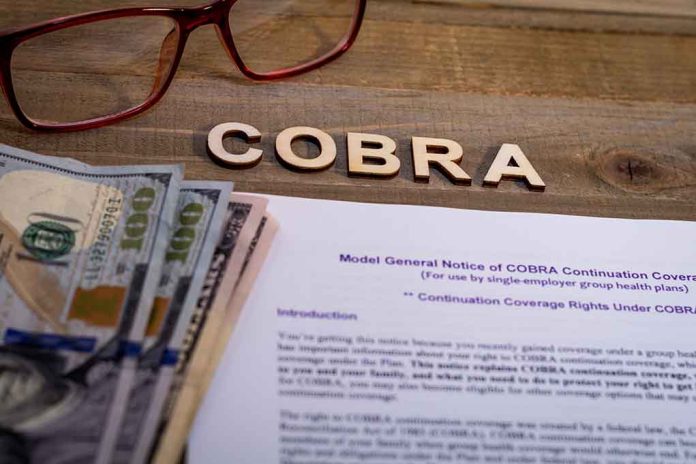
(DailyVibe.com) – Losing your job is one of the most difficult things any person can face. In the wake of the COVID-19 pandemic, as inflation continues to rise, it’s even more of a hardship to face job loss. As we transition to a world where copays may be required for virus testing and individuals are once again expected to cover many of their own medical costs, we rely significantly on employer-sponsored healthcare.
If you lose your job, though, your insurance will likely go with it. This means every time is a critical time to remain insured — and a bad time to lose a job.
Fortunately, there is one option you can choose if you have been laid off from your job: it’s called COBRA, or the Consolidated Omnibus Budget Reconciliation Act. COBRA can be expensive, but it’s meant to cover your health insurance needs while you recover after you have lost your job. There’s nothing worse than being hit with a medical emergency while unemployed and job seeking.
Through COBRA, your former employer should provide you (and your family, if applicable) with the option to remain with your current healthcare plan after your employment has ended.
COBRA Coverage: What Is It?
COBRA allows you to retain access to the group health benefits for a set amount of time after losing your job (or some other qualifying life events). If you meet specific requirements, you may be required to cover the entire premium, which may be up to 102% of the expenditures of the plan.
COBRA is mandated for every organization with at least 20 employees. They have to give you the option to retain temporary coverage following job loss. COBRA also mandates that employees and health insurers notify you of this option so you are aware of it.
How Do You Qualify For COBRA Benefits?
If you want COBRA coverage, there is no need to choose a new plan. The idea is that you get to keep the plan you already have through your employer-sponsored healthcare. COBRA lets you keep your existing health insurance for up to either 36 or 18 months, depending on your situation. In this time, it’s assumed you will find new work or otherwise be able to obtain new coverage.
However, you are not automatically eligible just because you lost your job. Here’s a general guide to knowing whether you qualify for COBRA benefits:
- The law needs to apply to the health plan you have; not all insurance policies comply with it.
- You must be a qualifying beneficiary of your existing healthcare plan.
- There must be a reason to qualify, such as job loss.
How to Sign Up For COBRA Benefit Coverage
Once your healthcare is scheduled to cease due to a qualifying incident such as job loss, you can begin the process. You will get a notice about how to retain our insurance and you must respond within 45 days of the qualifying event. After that, you have 60 days from the date of the notification to re-enroll if you wish, and at that time, you’ll be expected to make your initial premium payment.
This coverage IS retroactive, so if you incurred bills before re-enrolling, as long as you’re qualified to re-enroll, those bills will be covered.
COBRA Is Expensive For Some: Alternatives
COBRA is incredibly expensive for some, especially after suffering a loss of income. If you have major medical bills that can be retroactively covered, COBRA might still make sense. If not, it may make more sense to check into other options such as Medicaid (if you are low income) or the healthcare marketplace, which may have much lower costs than COBRA.
Copyright 2023, DailyVibe.com
















